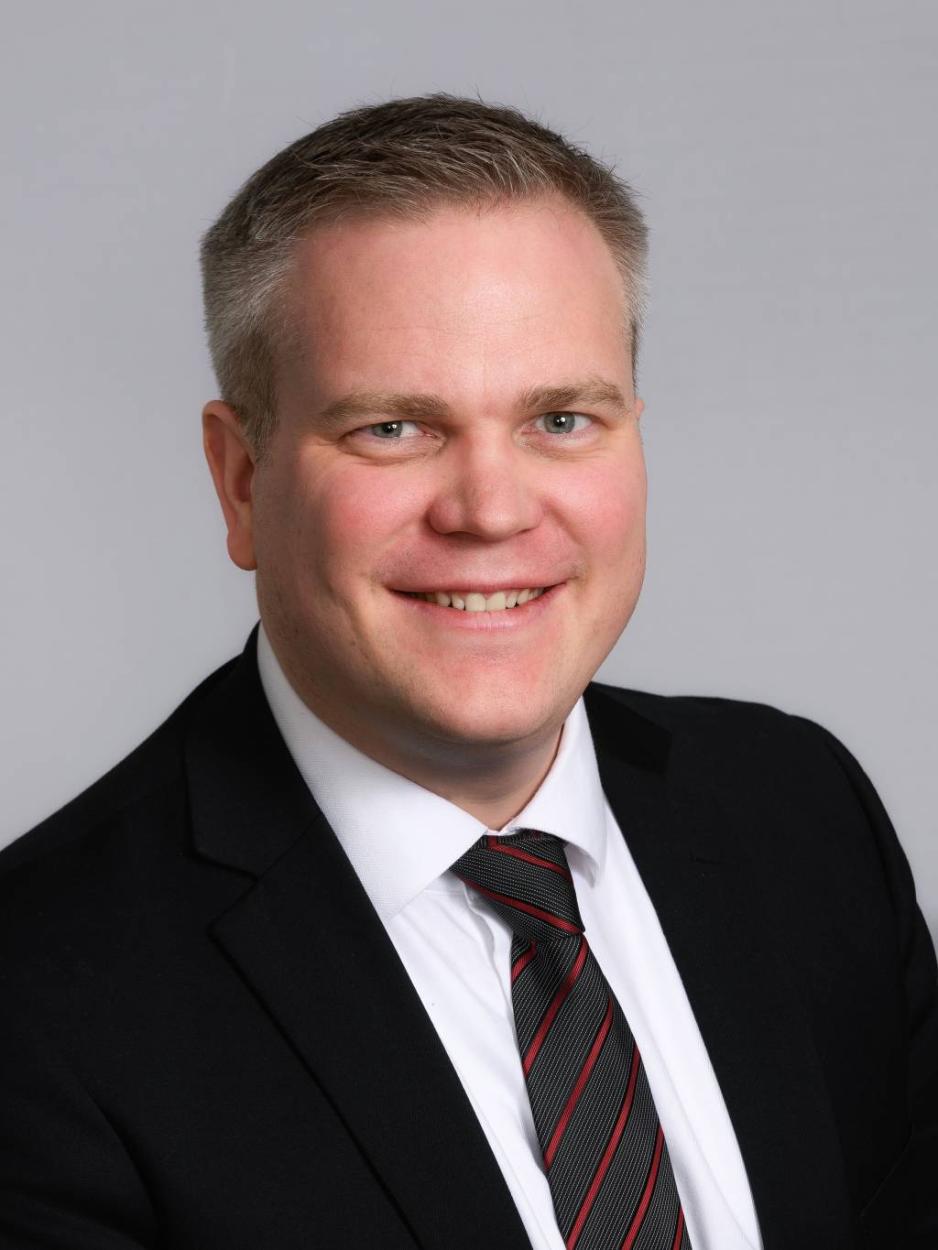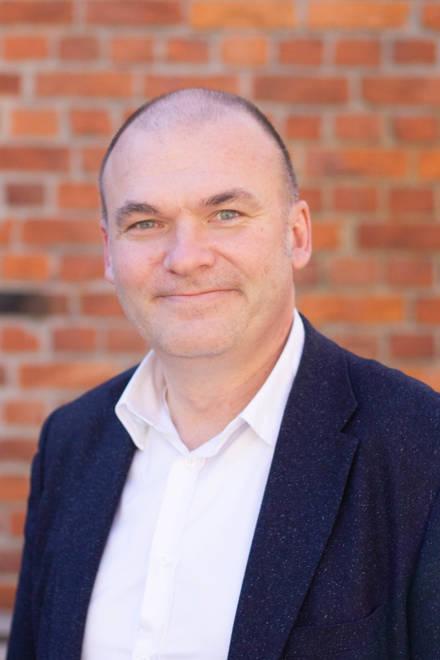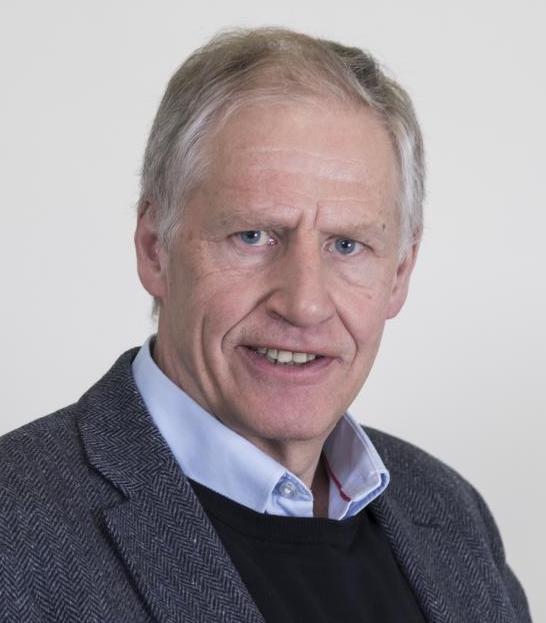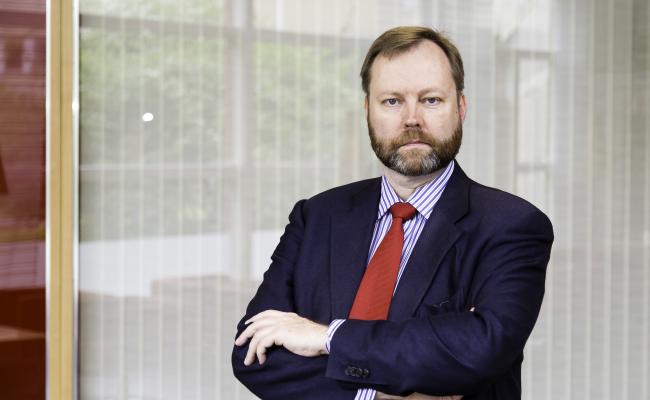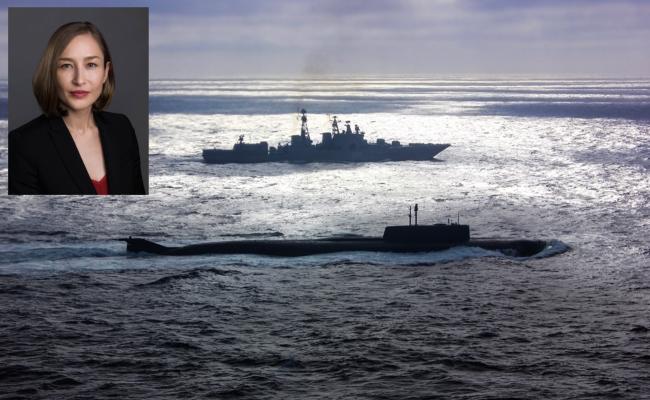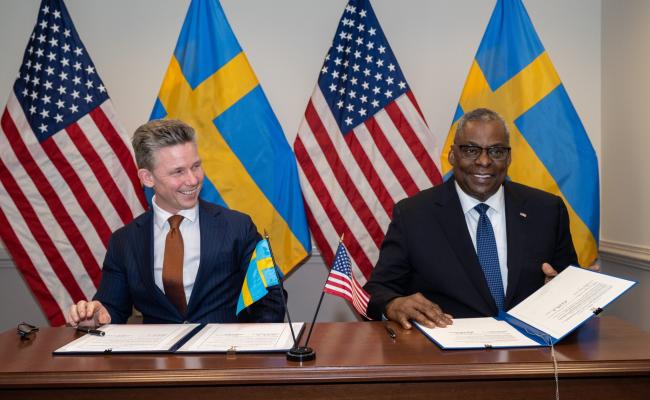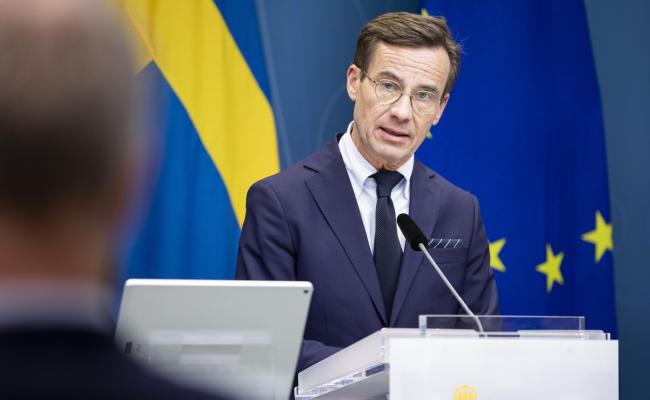Researchers’ Response to the Swedish War Warning
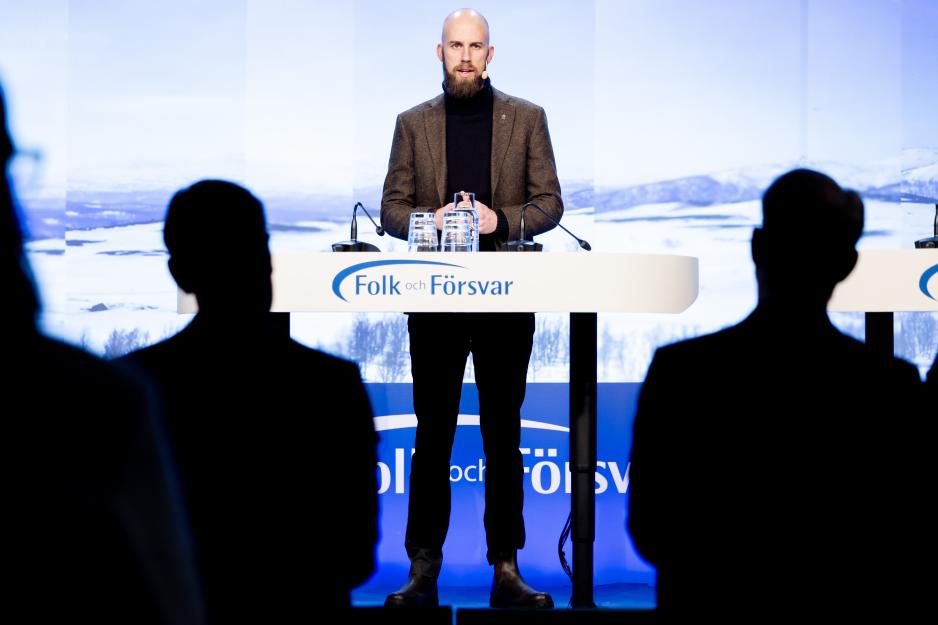
"I’m looking to open a door: a door that is frequently blocked and cluttered up with the demands and challenges of everyday life. A door that many Swedes may have kept closed their whole lives. A door to a space where we are confronted with an important question: who are you if war comes?" said Swedish Minister for Civil Defense, Carl-Oskar Bohlin, at the Society and Defense conference in Sweden. (Photo: Ninni Andersson/the Swedish Government Offices)
The Swedes must prepare for war, the country’s defense leadership recently stated. This is timely language, says one Norwegian researcher – while another supports Norway's sober threat communication. Such strong wording is unnecessary in Finland, notes a Finnish researcher.
"There could be war in Sweden," said Swedish Minister for Civil Defense Carl-Oskar Bohlin (Moderates) at the recent Society and Defense conference in Sälen, Sweden.
"Creating resistance in society cannot wait" was the title of Bohlin's speech. He emphasized that all Swedes must be aware of the situation and concretely prepare for war.
With Russia in mind, this clear message was also delivered by several members of the Swedish defense leadership during the conference.
"An armed attack against Sweden cannot be ruled out. War can also come to us," added MoD Pål Jonson (Moderates) in his speech.
"We must grasp the seriousness of the situation and mentally prepare at an individual level. Watch news from Ukraine and ask the simple questions: If this happens here, do I have what I need? What will I do?" said Chief of Defense General Michael Bydèn to TV4.
As the ultimate consequence, Swedish citizens must be prepared to defend the country "with weapons in hand – at the risk of their lives," stated Prime Minister Ulf Kristersson (Moderates).
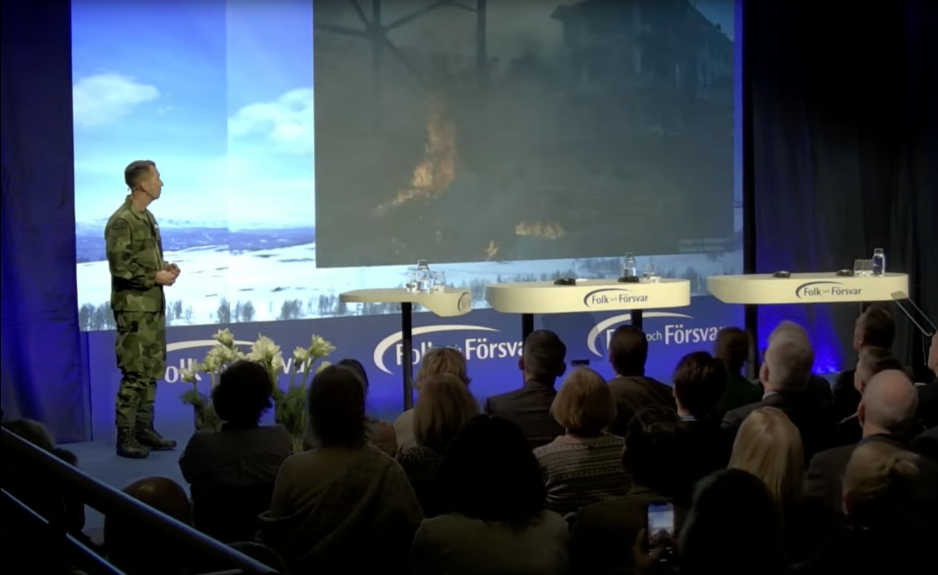
At the Society and Defense conference, the Swedish Chief of Defense, General Michael Bydèn, showed photos from the battlefield in Ukraine and asked the audience: "Do you think this could be Sweden?" (Screenshot from Society and Defense)
Timely, but a bit dramatic?
"The Swedish statements are clearer than in Norway, but after two years of a Russian war of conquest in Europe, they are appropriate," notes Håkon Lunde Saxi, Professor at the Norwegian Defense University College.
"The population of many European countries seems not to take seriously that we could be facing a great European war in a few years. To prevent further Russian territorial revisionism, Europe must demonstrate an ability and will for deterrence and collective defense. It will require major investments, which will demand public support to prioritize defense ability for many years to come," says Saxi.
Odd Jarl Borch, Professor at Nord University in Northern Norway, supports the more low-key Norwegian rhetoric. He is also a member of the country's Total Preparedness Commission.
"I think it is important to avoid scaring people unnecessarily and deliver a sober threat assessment as Norwegian authorities are doing. At the same time, as Norway's Defense Commission and Total Preparedness Commission emphasize, we must focus on a more demanding risk situation. This also includes what preparations are required regarding acts of war," Borch considers.
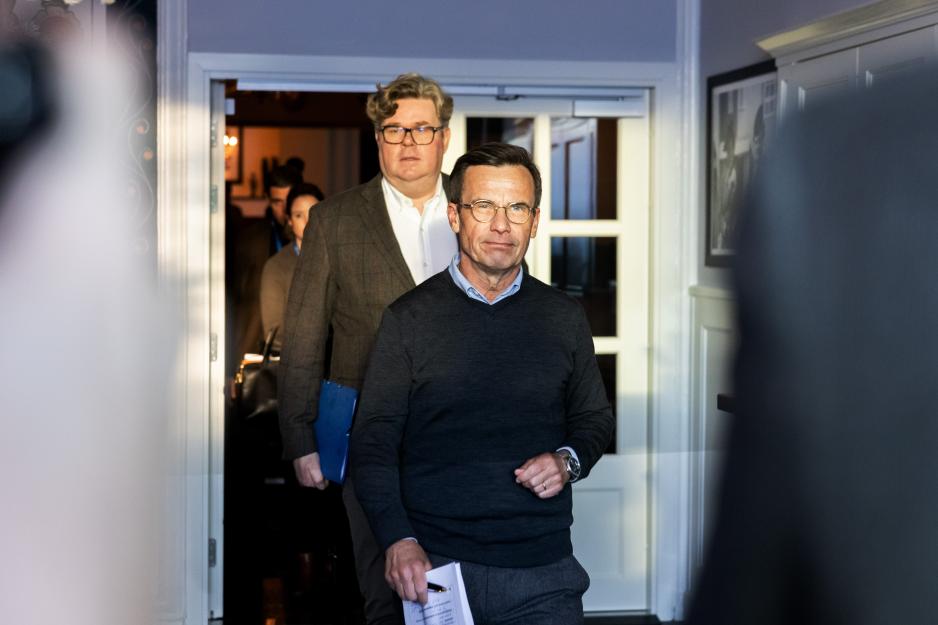
"Sweden faces a new and more dangerous reality. We and our neighbours are living in the direct shadow of Russia’s war of aggression against Ukraine," Swedish PM Ulf Kristersson pointed out at the conference. (Photo: Ninni Andersson/the Swedish Government Offices)
Attempt of effective communication
Chief of Defense Bydèn answers yes when asked if Russia could try to attack the Baltic, Sweden, and Finland, but notes that there is no immediate increased risk for an attack, reports Yle.
Therefore, it seems that the background for his and the ministers' plain language about war is not based on new critical developments linked to Russia, but on a wish for a more forceful wake-up call in the Swedish society.
"The defense elite seems to think that the Swedish people have not fully caught up with the possibility of the war escalating to Sweden and that the country's war preparations must be strengthened. Such warnings have of course been given previously, but they have not been that effective," says Tuomas Forsberg, Professor of International Relations at Tampere University.
To illustrate, Forsberg refers to a statement by former Swedish chief of defense, General Sverker Göranson, in 2013: "Sweden can defend itself for a week."
The Swedish response in short
The statements made by the ministers and the chief of defense have been met with both criticism and support by the Swedish public. The Swedish media reports that many children have been scared, and people are hoarding preparedness supplies. According to the Swedish Armed Forces, 1200 people have applied to join the Home Guard, compared to 250 at the same time last year.
"Could be more demanding"
The motive of Chief of Defense Bydén and the ministers is interpreted in a similar way by Professor Borch.
"I see the statements as part of the work to increase awareness in Sweden of external threats in a wide sense and to create acceptance for increased allocations and security measures."
"This likely includes an aspiration to make Swedish citizens more interested in preparedness in general, including self-preparedness. Sweden has long held onto its neutrality policy, and it could be more demanding to make the population understand that it has become more exposed to external threats."
"In comparison, Finland and Norway have lived with borders to an unpredictable Russia for generations, and as a NATO member, Norway has been more engaged in defense and defense alliances," he states.
The Swedish MoD's portrayal of the situation:
"The world has become more dangerous than it was just a year ago. The war in Ukraine continues and has developed into a cruel war of attrition. On both sides of the Atlantic, there is uncertainty surrounding long-term military support to Ukraine. At the same time, Russia has mobilized its economy and defense industry for war. With conflicts in the Middle East, we are forced to divide our attention among several hotbeds of crisis. And there is uncertainty about where the United States will be heading after the presidential elections in November. "
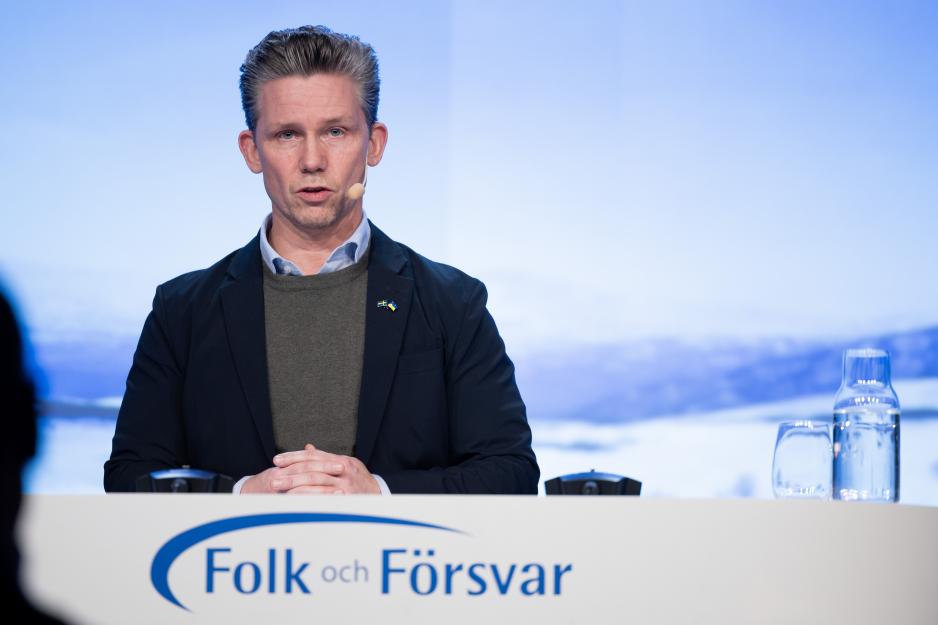
The Swedish Minister of Defense Pål Jonson. (Photo: Ninni Andersson/the Swedish Government Offices)
Implied in Finland
How does Sweden's situational analysis and language around security differ from Finland's?
"This is an interesting comparison since the stereotypical image has been that the public discourse in Finland is more straightforward, while the Swedish is more subdued. However, in matters of war and peace, the wording does not have to be so direct in Finland; people have always understood the message here – also if it is just implied," answers Professor Forsberg.
"Due to the history and geography, the situational awareness and preparedness have been on a much higher level in Finland in the post-Cold War years. Surely, Finnish rhetoric has also changed, but to a much smaller degree," he considers.
A correspondent for the Finnish public broadcaster YLE, Pirjo Auvinen, has reacted to the Swedish wording and believes it clearly differs from the Finnish language practices. "You do not play with the word war," she said to the Swedish public broadcaster SVT.
On his part, Forsberg is ambivalent to the Swedish mode of expression.
"The statements are alarming in order to get the message across, but such hard rhetoric may sometimes have a backlash effect. In my opinion, the probability of the war spreading to Sweden in Finland is small, but not so small that it can be ignored. I am a bit agnostic regarding the right tone and what societal effects such statements could have. A lot depends on traditional and social media."
Russian comments
"At Society and Defense, representatives of Sweden's military leadership and government devoted their speeches to once again scaring Swedes with the alleged, practically 'inevitable war against Russia.' Perhaps the Swedish leadership should stop driving its own population into paranoia?" insists the Russian embassy in Sweden. It encourages the aforementioned leadership to release adrenaline in the Swedish winter landscape instead.
"The defeat in the Great Northern War haunts the Swedes, who call for preparations for new conflicts," states Aleksey Pushkov, a member of the Federation Council in Russia's National Assembly. He also believes that Sweden uses "anti-Russian paranoia" to give the country a geopolitical significance it does not have, reports Ria Novosti.
Sweden is more vulnerable
Contrary to Finland, Sweden still awaits the green light from Turkey and Hungary for NATO accession. This also makes the country more exposed than its allied neighboring countries, but not on a large scale, considers the Defense University College professor.
"Sweden is more vulnerable until the country is a full-fledged member of the alliance, and therefore covered by the Atlantic Treaty Article 5. However, the significance of the lack of membership should not be exaggerated," Saxi points and continues:
"When Sweden and Finland announced they would apply for NATO membership, they secured bilateral security guarantees from several countries. This included a strongly binding written guarantee from the UK and several minor formalized or oral guarantees from various countries – including the US and Norway.
"Therefore, it is almost unthinkable that a number of NATO's most important member countries would not react if Sweden were to be attacked. The main challenge at the moment is that Sweden cannot participate in the planning of NATO's collective defense and in the alliance's command structure as a full-fledged member."
Fairly clear Norwegian speech
At the same time that the mode of expression in Sweden appears to be more direct than in Norway, the gravity has also been communicated here, believes the Nord University professor.
"Norwegian authorities, including the chief of defense, have been concerned with not creating a too dramatic picture by pointing out that there is no immediate threat. But note that we have also gotten two commission reports, from the aforementioned Defense Commission and the Total Preparedness Commission, which highlight that Norway is facing a serious security situation in the coming time."
Borch refers to the title of the Total Preparedness Commission's report, "This is serious," and to the statements by Defense Commission's leader, Knut Storberget, saying that the municipalities should prepare for war.
"So there is quite clear speech here as well – perhaps not directly to the population – but at least to those who are responsible for preparedness, both in the private and public sector. After having traveled around a lot the past year, giving lectures, my impression is that we have become more aware and concerned with preparedness in general in Norway," claims the professor.
The Swedish Minister of Civil Defense's appeal to citizens:
"Are you a private individual? Good, then have you taken responsibility for your home preparedness? Have you considered whether you have time to join a voluntary defense organization? If not, get moving!"
Military-civilian deterrence
"An important point, which the Swedish Chief of Defense also touched upon, is that deterrence is not just about showing what military power one can muster. An all-encompassing deterrence strategy, which is the new defense doctrine, is linked to the extent to which one has both war capacity and a civil society that is robust enough to withstand major trials," Borch asserts.
This signaling could be of great importance, he believes.
"It is not certain that Russia would have attacked Ukraine if it had understood how resilient the Ukrainian civil society is against the trials of war. Therefore, it is important that we can show that we are concerned with creating an even stronger total defense, where the civil society also expresses robustness and a will to mobilize."
"There may also be a reason to point out that modern warfare occurs in several arenas and multiple stages before it comes to physical war. This concerns cyberattacks, influence operations, and sabotage – where a physical full-scale war may depend on whether or not one succeeds in the first stages. Protection against these threats is largely a civil responsibility and requires that the civil society is motivated to accept increased security measures and the additional costs these entail," notes Borch.



